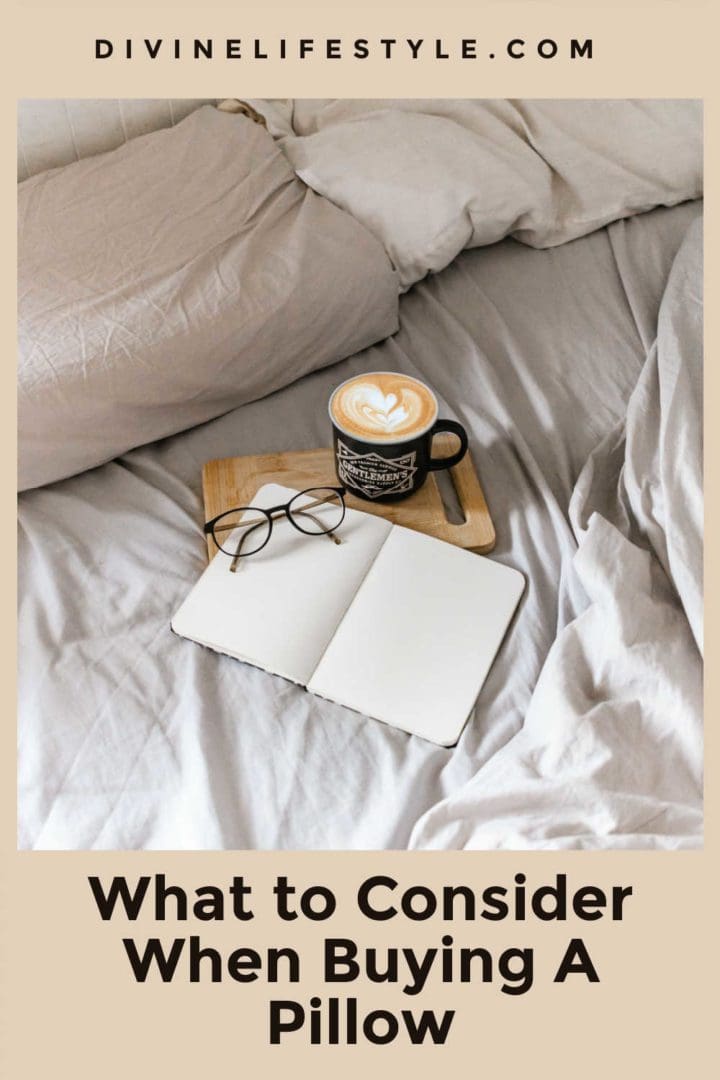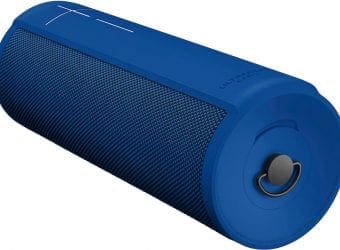What to Consider When Buying A Pillow
What to Consider When Buying A Pillow
When striving to get a good night’s sleep, a few things come into play the bed mattress, a pillow, noise, temperature, and even the most minor light. The first thing you think about when trying to improve your sleep is a comfortable mattress; however, if your pillow is horrible, you will keep falling short of obtaining a peaceful sleep. Getting the perfect pillow is just as essential to improving the quality of your sleep; depending on the kind of sleeper you are, you ultimately want to get a good sleeping posture. Some pillows are purely for display, with varying designs to suit different seasons. When scavenging for your next pillow, here is What to Consider When Buying A Pillow.

What to Consider When Buying A Pillow
The Right Pillow Filling
The type of filling determines the durability of the pillow. Though it may be on the pricey side, the natural goose feather is an example of a comfortable and long-lasting pillow filling. Cost-friendly fillings like polyester fiber or synthetic pillows provide a good alternative and are machine washable, compared to a down feather pillow. Spongy memory foam offers firmer support; however, retaining heat is the only downside to it, especially if you sweat easily. Depending on the type of person, choosing the correct pillow filling is vital to your sleep. Bamboo pillows with memory foam filling are a great choice for all types of sleepers.
Quality is another factor that should not be ignored. The best fillers are hypoallergenic and biodegradable. Some fillers, such as down or feathers, may cause allergic reactions or skin irritations. A good filler is also likely to feel luxurious against the head, and not feel like a plastic brush with bristles sticking out all over the place. You don't want a pillow that feels cheap. Before buying a pillow, find out more about the company that makes them so you have an idea of what to expect.
The Science in The Design
It may sound a bit unusual, but the science behind the build is considered when buying a new pillow. For example, a cooling pillow has many benefits to help improve your sleep, promoting better airflow and cooling sensation in its technology. There are various other technologies for pillow designs, and all aim to engineer perfect cooling and comfort to give you the best sleep. Nowadays, pillow science aims to bring additional benefits, including mental health and calm insomnia, for those who struggle with it.
Consider Your Sleeping Position
When sleeping, we all take up different sleeping positions, which affects the quality of our sleep and how quickly we fall asleep. When you’re looking for the right pillow, take your sleeping position into account. Thinner pillows like memory foam are recommended for back sleepers, allowing a good neck position while molding into the shape of your neck and head. Side sleepers are advised to opt for firmer pillows, keeping the neck firm and position without sinking. At the same time, stomach sleepers prefer thin to no pad at all.
Pillow Firmness
Pillow firmness dramatically affects the quality of your sleep, ranging from soft, medium soft, firm, and very firm. Pillows made from cotton, down, or polyester tend to be fluffy and very soft compared to the rest, ideal for stomach and back sleepers. Back sleepers may prefer a medium-firm buckwheat pillow, or a bamboo pillow with memory foam filling. Side sleepers frequently suffer from neck pains and need firm support, and pillows made from ultra-dense memory foam or polyester.
Thread count
A pillow's thread count refers to threads running in the fabric, vertically and horizontally in one square inch of the material. In lay terms, the higher the thread count, the softer and more durable the pillow becomes. A reasonable thread count and cost-effective pillow have an average count of 300, whereas a luxurious and pricier pillow has a thread count between 500-800. There are pillows with more thread counts; however, they come at a much steeper price.
Consider the Fluff Factor
It is essential to know that the fluffier your pillow is, the more durable and comfortable it is, and considering that should be at the top of your concerns. Ideally, a soft pillow should be breathable, allowing fresh air to travel through it, making it comfortable support. Fold the pillow in half to test this for yourself, to see whether or not it fluffs back up, and if it doesn’t, search for another one.
Price Tag
Believe it or not, the price may be the most important consideration. The cost of a pillow will vary greatly depending on where you purchase it from, and on several factors such as the materials it’s made from, the craftsmanship involved in the production, and its manufacturer. Before you buy a pillow, read as many customer reviews as you can, and find out what others think of the item you’re thinking of purchasing.
Online stores generally have the best prices, so try and find a store that offers free shipping or even a discount. That said, there are some great deals on the internet, so don't rule out the possibility of getting a great pillow at a reasonable price. Just keep an eye out for sales, and you'll be able to find a pillow within your budget. When shopping for the ideal pillow for yourself, it is crucial to set a margin or financial boundaries. An estimated budget for pillows will keep you from overcompensating or spending unnecessarily. It is advisable to stick to what you can afford.
Purpose
The existence of pillow types exists because there are many reasons to utilize a pillow, and some extend beyond the bedroom. An example of a specialized pillow is a neck pillow, which could be awkward to use in a bed, but serves its purpose when traveling. Therefore, it is essential to do your research and identify your intended purpose for your pillow before picking out any kind. You may be forced to get a specialized pillow with a specific design in a particular size.
We hope that this What to Consider When Buying A Pillow post inspires you. Happy shopping!






Pingback: Common Problems When Using a CPAP Machine (and How to Avoid Them)